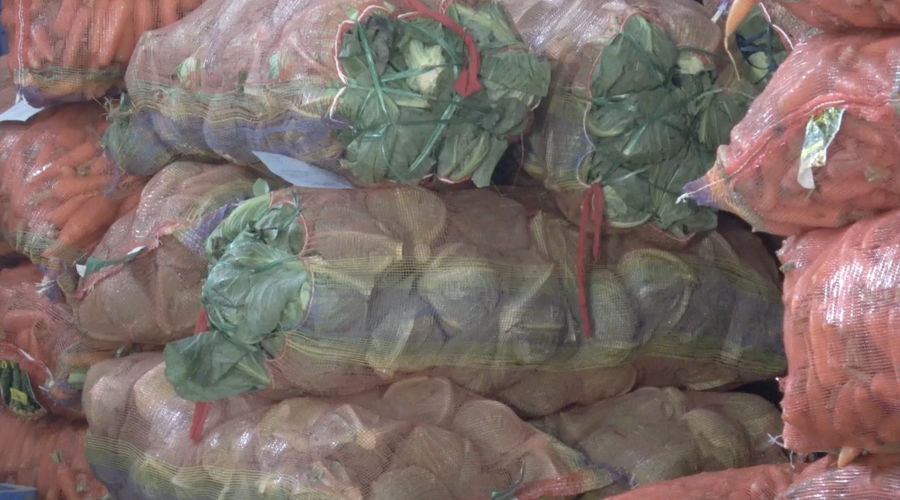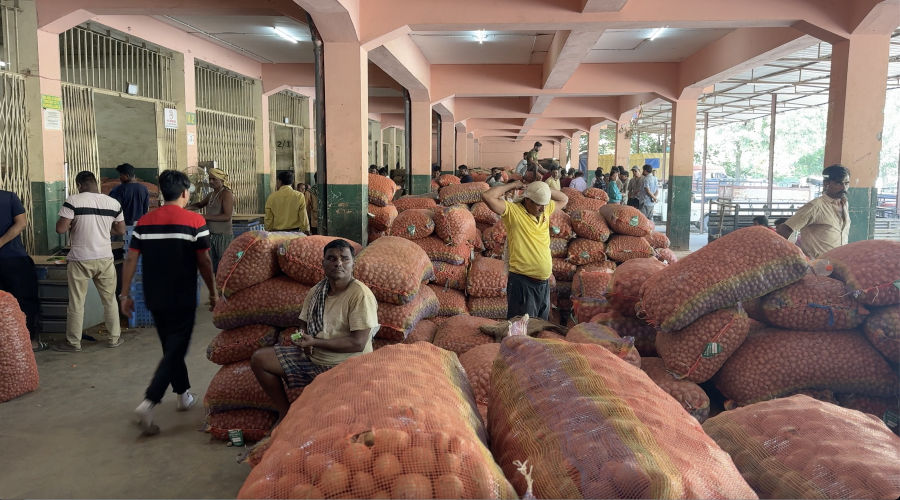 Bhutan’s vegetable export rose significantly last year, but so has the import of essential items during the same period. According to the Food Corporation of Bhutan’s (FCB) 2024 annual report, the surge in vegetable supply and exports is primarily driven by government initiatives and institutional demand.
Bhutan’s vegetable export rose significantly last year, but so has the import of essential items during the same period. According to the Food Corporation of Bhutan’s (FCB) 2024 annual report, the surge in vegetable supply and exports is primarily driven by government initiatives and institutional demand.
The export of vegetables has shown a steady upward trend in the post-pandemic period, rebounding from its lowest point during the 2020–2021 season. The volume of vegetable exports increased by over 24 per cent last year compared to 2023.
“Vegetable exports don’t match potatoes in terms of volume or value. So, I haven’t seen private traders showing much interest in exporting vegetables. As a result, the bountiful harvest was routed to FCBL, which raised the export quantity,” said Dorji Tashi, CEO, FCB.
He added that more farmers are now taking up vegetable farming after the government began providing irrigation infrastructure and chain-link fencing. Additional contributing factors, he said, are the Gyalsung project and schools where local vegetables are supplied.
The company exported nearly 3,000 metric tonnes of vegetables last year, excluding potatoes, generating almost Nu 115 M in revenue.
However, potato exports, through the corporation, dropped despite seeing a record high the previous year.
In terms of volume, potato exports saw a sharp decline of over 42 per cent, mainly due to increased participation by private traders at the auction yards. The company exported over 11,000 metric tonnes of potatoes last year, generating nearly Nu 115 M.

“Looking at the situation, when there is access to the market, private traders are taking an interest and actively exporting. However, there have been cases where, after selling the potatoes, some did not receive their payments. I have also heard that some farmers didn’t get their money. While it is encouraging that the private sector is playing an active role in exports, they must know their dealers well, as there is a risk that the dealers may not pay them back,” said Dorji Tashi, CEO, FCB.
Besides vegetables, the company exported fruits and spices, including cardamom, generating nearly Nu 3bn. This has surpassed last year’s revenue target of over Nu 2.5bn.
On the other hand, imports of essential items through FCB continuously surged last year, with both volume and value recording notable increases. The company saw around 14 per cent increase in the volume of essential items imported last year as compared to 2023.
The company imported essential items worth over Nu 1.2bn last year.
Kinley Dem & Kelzang Chhophyel
Edited by Phub Gyem







